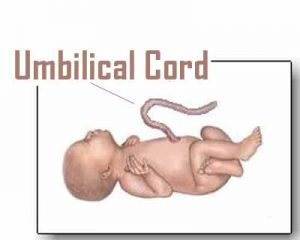- Home
- Editorial
- News
- Practice Guidelines
- Anesthesiology Guidelines
- Cancer Guidelines
- Cardiac Sciences Guidelines
- Critical Care Guidelines
- Dentistry Guidelines
- Dermatology Guidelines
- Diabetes and Endo Guidelines
- Diagnostics Guidelines
- ENT Guidelines
- Featured Practice Guidelines
- Gastroenterology Guidelines
- Geriatrics Guidelines
- Medicine Guidelines
- Nephrology Guidelines
- Neurosciences Guidelines
- Obs and Gynae Guidelines
- Ophthalmology Guidelines
- Orthopaedics Guidelines
- Paediatrics Guidelines
- Psychiatry Guidelines
- Pulmonology Guidelines
- Radiology Guidelines
- Surgery Guidelines
- Urology Guidelines
Anti-Depressant Use in Pregnancy May Lengthen Umbilical Cord

Excessive use of anti-depressants during pregnancy may lengthen the umbilical cord, exposing the foetus to a lack of oxygen and other health problems, new research warns.
The findings showed that the prenatal usage of selective serotonin reuptake inhibitors (SSRIs) a commonly prescribed antidepressant drug is likely to increase the foetal activity and movement in the uterus.
An elongated umbilical cord can weaken foetal circulation and expose the foetus to a lack of oxygen during pregnancy or birth, among other health problems.
The length of the umbilical cord is affected by how much the growing foetus moves in the uterus.
"When the foetus moves, the umbilical cord stretches and eventually gets longer," said lead author Julia Kivisto, doctoral student at the University of Eastern Finland.
Also, the newborns whose mothers used SSRI drugs were also given low activity scores and they were twice as likely to end up in intensive care than other newborns.
The study, published in the journal PLOS ONE, analysed the effects of SSRI use during pregnancy on the course of pregnancy, foetal development and birth outcomes.
According to different estimates, 7-19 per cent of expectant mothers suffer from depression during pregnancy, and approximately 7-9 per cent use antidepressants, researchers noted.
"Depression, both when left untreated and when treated with drugs, causes some changes to the course of pregnancy and birth. This is why it is extremely important to carefully consider the individual situation of each patient when choosing the treatment," Kivisto suggested.
The researchers examined more than 24,000 women who gave birth at Kuopio University Hospital in Finland between 2002 and 2012.
Antidepressants were used during pregnancy by 1.7 percent of the study participants, i.e. by 416 women, and the majority used SSRI drugs.
The most commonly used SSRI drug was citalopram, which was used by 217 expectant mothers.
Among the SSRI drugs analysed in the study, children of mothers who used citalopram during pregnancy had longer umbilical cords than others.

Disclaimer: This site is primarily intended for healthcare professionals. Any content/information on this website does not replace the advice of medical and/or health professionals and should not be construed as medical/diagnostic advice/endorsement or prescription. Use of this site is subject to our terms of use, privacy policy, advertisement policy. © 2020 Minerva Medical Treatment Pvt Ltd